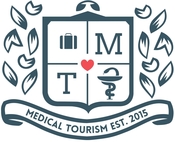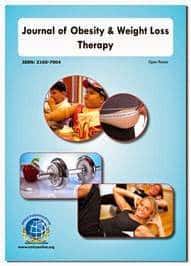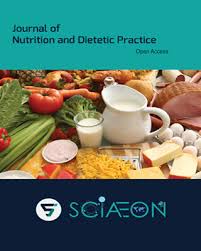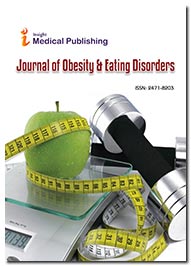Theme: Educate & Strengthen Prevention of Obesity by Proper Nutrition and Physical Activities
Obesity Diet 2019
ME Conferences extends warm welcome to 2nd International Conference on Obesity and Diet Imbalance on November 25-26, 2019 Dubai, UAE with a theme “Educate & Strengthen Prevention of Obesity by Proper Nutrition and Physical Activities”. Participating at Obesity Diet 2019 will furnish an exceptional opportunity to associate with world-class Obesity Specialists and Endocrinology Experts in the field making a channel for coordinated efforts and partnerships.
Obesity Diet 2019 is a worldwide stage to examine and find out concerning Weight Management, Childhood Obesity, Obesity & Cancer, Genetical Obesity, Anti-obesity drugs, Bariatric treatment, Obesity and Diabetes, Advanced medications for Obesity, Health Behaviour and Environment, Basic nourishment and diet, Scientific gatherings and meetings and the field of Obesity. Obesity and Nutrition Meetings would talk about different themes identified with Obesity and Nutrition, Metabolic Syndromes and Anorexia, Pediatric Nutrition, Maternal and Child Nutrition and Current Advances in treating Obesity through Bariatric Surgery. Current Obesity Conferences 2019 has taken the start to congregate the world-class specialists both from industry and academic in a typical stage at Obesity Conferences.
Who can attend?
Obesity Diet 2019 brings together individuals who have an interest in different fields of Obesity like Obesity, and its Causes, Anti-Obesity Drugs, Obesity in Real Life, Childhood Obesity Effects, Obesity and Diabetes, Obesity and Endocrinology, Bariatric Surgery, Gynaecology & Obstetrics, Obesity in Teens and Adolescents, Nutrition and Dietary, Sedentary lifestyles and Obesity, Genetics of obesity, Obesity & Metabolic Disorders, Diet & Nutrition, Current research on Obesity.
Why to Attend:
Upcoming Obesity Diet 2019 gives the examination works of Obesity Symposiums 2019 and Obesity Workshops 2019 aptitude from coherent establishments and the same can be seen by young scientists and researchers. Obesity Conferences 2019 predominantly means to declare learning in course of research work and in this way would be an ideal scene to share and create information on key instruments.
Target Audience:
- Metabolic & Bariatric Surgeons
- Basic Clinical Research Scientists & Students
- Physicians
- Industry Professionals
- Integrated Health Professionals
- Dieticians and Nutritionist
- BMI Training Institutes
- Health Promoters
- Registered Dieticians & Nutritionists
- Diabetes Educators
- Physical Therapists
- Yoga & Fitness Professionals
- Medical Colleges
- Obesity & Endocrinology Associations and Societies
- Business Entrepreneurs
- Public Health Professionals
- Pharmacists
Obesity and its causes:
It is a disorder that involves excessive body fat that increases the risk of health problems. Obesity often results from taking in more calories than are burned by exercise and normal daily activities. When a person's body mass index is greater than 25, they are said to be obese. The extra fat increases the risk of various health problems. The condition is caused when the body is consuming more calories than it utilizes. Imbalanced diet, lack of physical activities, unhealthy lifestyle, environmental and behavioral factors is some of the few of the causes for obesity.
- Genetic syndromes and mutations
- Insulin resistance
- Sedentary life
- Food addiction
- Gut bacteria
- PCOS in women
Genetics of Obesity:
Studies have identified variants in several genes that may contribute to body fat distribution and ultimately weight gain and; although, only in a few cases are genes the primary cause of obesity. Candidate gene and genome-wide association studies have led to the discovery of nine loci concerned in Mendelian forms of obesity and 58 loci contributes to polygenic obesity. These loci justify a small fraction of the heritability for obesity and many genes remain to be discovered.
- Prader–Willi syndrome
- Bardet–Biedl syndrome
- Cohen syndrome
- MOMO syndrome
- Alstrom syndrome
- Carpenter syndrome
- Rubinstein-Taybi syndrome
Balanced Diet & Chronic Diseases:
Poor diet is one of the major contributors to the leading causes of chronic illness and death. Healthy diets along with physical activity are key to good nutrition and necessary for a long and healthy life. Eating nutritional foods and balancing energy intake with the necessary physical activity to maintain a healthy weight is essential at all stages of life. Unbalanced intake of foods high in energy (sugar, starch and/or fat) but low in essential nutrients commits to energy excess, overweight and obesity. The quantity of the energy consumed in relevancy to physical activity and also the quality of food are key determinants of nutrition connected to chronic disease.
- Heart disease
- Diabetes
- Hyperlipidemia
- Stroke
- Cancer
- Osteoporosis and bone fractures
-
Dental disease
Nutritional Imbalance & Role of Metabolism in Obesity:
The body requires many different vitamins and minerals that are essential for both body development and prevention of a disease. These vitamins and minerals are known as micronutrients. A nutritional deficiency occurs when the body doesn’t absorb or get necessary amount of a nutrient from the food. Deficiencies can lead to a variety of health problems like digestion problems, skin disorders, stunted or defective bone growth, and even dementia.
On the other Hand, metabolism is the rate at which our body utilizes our nutrition. While there are many factors that influence our metabolism (hormone levels, enzyme secretion, chronic disease conditions, medications, stress, activity level and sleep patterns). The rate of metabolism directly effects caloric needs and results in weight loss or weight gain.
- Fat burning foods
- Fibre intake
- Low glycaemic index foods
- Metabolic disorder
- Metabolic disease therapy
- Cardiometabolic disease
Role of Steroids and Hormones in Obesity:
Sex steroid hormones are concerned with the metabolism, accumulation as well as the distribution of adipose tissues. Recent studies reveal that progesterone receptor, oestrogen receptor and androgen receptor exist in adipose tissues therefore, their actions could be direct. Sex steroid hormones carry out their function in adipose tissues by both nongenomic and genomic mechanisms.
- Metabolic effects of steroids hormones in obesity
- Obesity and corticosteroids
- Insulin resistance
- Steroid hormones in our food and obesity
Maternal and Child Care during Pregnancy:
Obesity in women is connected with alterations in the reproductive cycle with a restriction in fertility with an increased risk of polycystic ovarian syndrome (PCOS) and irregular or no ovulation. Overweight women suffering from PCOS shows insulin resistance. They are prone to developing diabetes. All these issues make the treatment of infertility less successful and more complicated.
- Gestational diabetes
- Preeclampsia
- Sleep apnea
Pediatric Nutrition:
Pediatric Nutrition is a description of the dietary needs of infants. In Pediatric nutrition the most important aspect is breastfeeding. Feeding the premature baby provides the long chain fatty acids and prebiotics to the children. Severely undernourished children die of insufficient management with too much volume and too much protein in the initial phase.
- Pediatric pulmonology
- Pediatric surgery
- Pediatric gastroenterologists
- Bottle feeding
- Breast feeding
Childhood Obesity: Causes and Prevention:
Childhood obesity is a condition where excess body fat has a negative impact on a child's health or well-being. Due to the rising prevalence of childhood obesity and its many adverse health effects it is being recognized as a serious public health concern. Childhood obesity can lead to diabetes, high blood pressure and cholesterol, early heart problems and skin conditions such as heat rash, fungal infections, and acne.
- Depression
- High cholesterol
- Community and neighborhood design and safety
- Short sleep duration
- Eating and physical activity behaviors
- Health education
- Sports programs
Obesity & Psychiatric Disorders:
Several studies have found that a numbers of patients with mental illness are obese compared to the general population. Mental illness may increase the risk of obesity, while obesity may increase an individual's chances to develop a psychiatric disorder. The reasons behind the link between obesity and psychiatric problems are poor self-image, the biological disruptions caused by obesity, physical inactivity and the social stigma related to being overweight. Epidemiological studies justify positive associations between obesity and mood disorders.
- Depression
- Personality disorder
- Anxiety
- Eating disorder
- ADHD
- Alcohol use
Nutrition & Brain Health:
Studies shows that food, aerobic exercise and sleep has an effect on the brain functioning and mental health. This raises the exciting probabilities that changes in diet can enhance cognitive abilities, protect the brain from damage and counteract the effects of aging. Excess calories reduce the flexibility of synapses and increase the chances of cell damage during the formation of free radicals.
- Foods for healthy brains
- Food Addiction
- Dementia
- Binge eating
- Increased memory loss
Obesity and Cardiac Health:
Obesity is an independent risk factor for cardiovascular Disease, and Cardiovascular Disease risks have also been documented in obese children. Obesity is linked with an increased risk of mortality and morbidity as well as reduction in life expectancy. Medical costs and health service use associated with obesity have risen and are expected to continue to rise.
- Dyslipidemia
- Glucose intolerance
- Coronary heart disease
- Heart failure
Bariatric Surgeries & its types:
Bariatric surgery consists of procedures performed on a person who suffers from obesity, thus reducing the risk associated with obesity. The main idea behind the surgery is restriction and Malabsorption. Surgery limits the amount of food the stomach can hold, thus restricting the number of calorie intake. Malabsorption shortens the length of small intestine reducing the amount of calories and nutrients the body can absorb.
- Gastric by-pass
- Laparoscopic adjustable gastric banding
- Sleeve gastrostomy
- Duodenal switch with biliopancreatic diversion
Post-Surgery Diet & Exercise:
Exercise accompanied with proper diet helps in achieving a long term success to lose weight and maintain a healthy lifestyle. Physical activities especially exercise helps in faster recovery. It helps in improving circulation, reduces the risk of blood clots, promotes wound healing as well as improves the bowel function. Healthy lifestyle incorporating an exercise program will offer many benefits like maintaining weight loss, boosting metabolism, reducing risk of heart disease and some types of cancer, helping to maintain and develop muscle strength, endurance and tone, promoting joint stability, bone strength and integrity.
- Cardio
- Strength training
- Vitamin and minerals supplements
Exercise, Yoga and Physical Therapy for healthy weight loss:
Yoga is among the ancient form of exercise that focuses on your mind, body and soul. On the other hand, physical therapy, not only works to prevent osteoporosis in women and neck pain or low back pain, physical therapy is a proven weight management tool. Physical therapist can perform a full assessment of body and health targeting areas of concern and customize an exercise program designed to reduce, in fact, eliminate pain and making healthier beings. Therapists can teach the correct form for each exercise to be performed with minimal pain and strain helping getting rid of the excess pounds.
- Vinyasa and power yoga
- Yoga therapy
- Mobile physical therapy and momentum
Weight pills for Obesity:
While Exercise and diet can help, but for some prescribed weight loss medications can help. It is usually prescribed when the BMI is greater than 30. Weight pills to treat obesity works in different ways. Some medications help in feeling less hungry or full sooner. Some medications makes harder for your body to absorb fat from the foods eaten. It is usually prescribed for patients especially with health concerns related to obesity.
- Garcinia cambogia extract
- Hydroxycut
- Caffeine
- Orlistat
- Raspberry ketones
- Green coffee bean extract
Prevention and Management of Obesity:
The Primary prevention of obesity in children, young people, and adults provides information on preventing overweight and obesity by lifestyle modification program, focus on recommendations for physical activity, healthy diet along periodical medical examination. It also deals with weight management in children and adults by regular assessment based on body mass index (BMI) and to assess underlying causes, risk factors, and comorbidities of obesity. Management of obesity includes lifestyle changes, medications as well as surgery. The main treatment for obesity consists of physical activities and dieting.
- Weight loss programs
- Clinical protocols
- Ketogenic Diet
- Protein rich diets
- Drug therapy
Traditional Chinese Medicine and Acupuncture:
Traditional Chinese medicine is a kind of traditional medicine usually based on more than 2,500 years old Chinese medical practice which includes various forms of herbal medicine, acupuncture, massage, exercise, and dietary therapy to prevent health problems. Acupuncture involves thin needles which are inserted into the body. Acupuncture is usually safe when done by properly by a trained practitioner using clean and single-used needle technique.
- Chinese herbal medicine
- Tui-na
- Food therapy
- Qi-gong,
- Tai-chi
Role of Anesthesiologists in Obesity:
With the prevalence of obesity, there are an increasing number of obese surgical patients which will require anesthesia. This topic evaluates the changes in physiology and anatomy of obese patients. This helps in management of anesthesia, monitoring anesthesia drug dose in obese patients, planning type of anesthesia, efficient monitoring, as well as analgesic plan as it differs from patients with normal BMI. There is a preoperative medical evaluation of obese patients to check the impact of obstructive sleep apnea on anesthetic management.
- Morbid obesity
- Preoperative assessments
- Post-Operative considerations
- Cardiovascular system assessments
Current Research in Nutrition and Dietetics:
Dietary transitions play essential roles in the mankind evolution. Nutraceuticals role in cancer therapy promises prominent active doctrines in opposition to cancer cells. The impact of various varieties of nutraceuticals derived from herbals like Quercetin and Catechins, Phenolic Acids and Phytochemicals Resveratrol, Lycopene, Dietary Fiber and Phytoestrogens, Genistein and Curcumin, Vitamin C and E, Cruciferous Vegetables, which might be used for cancer remedy, are some of the few advances in food technologies. Nutricosmetics is a new technology for skin supplements for beauty and healthy skin.
- Synthetic nutrition
- Nutritional screening
- Nutrigenomics
- Detection of GM foods
Malnutrition or Nutritional Deficiency:
Malnutrition results from eating a diet with nutrients which are either not enough for the body and causes health problems. It involves calories, carbohydrates, protein, vitamins or minerals. These insufficient nutrients are called undernutrition or undernourishment while too much is called overnutrition. Extreme undernourishment, referred to as starvation have symptoms like a thin body, short height, very poor energy levels, and swollen legs and abdomen. Apart from marasmus and kwashiorkor, deficiencies in iodine, iron, vitamin A and zinc are the main indications of malnutrition in developing countries.
- Food security
- Breast feeding
- Protein-energy malnutrition- Marasmus & Kwashiorkor
- Micronutrients deficiencies
- Management and control
Why in Dubai?
Obesity is becoming a serious issue in many developing countries, with negative ramifications for economic growth and human prosperity. Over the past 20 years, obesity has increased remarkably in Dubai across all population groups, including rural and low income strata. The issue is particularly severe among women. One of the biggest issues confronting women of childbearing age in the region is obesity, as per the report from Dubai's Department of Health. UAE teenagers are facing serious health threats with an expansion in the number of eating disorders reported. Eating disorders have the most astounding death rate amongst all mental health disorders, most often due to suicide or medical complications. As indicated by Arab Health Recruitment and Training, it is no secret that the UAE has the most noteworthy obesity rates in adolescents. Apart from the risk of chronic lifestyle conditions; teenagers are also facing yet another health-related threat with binge eating disorders.
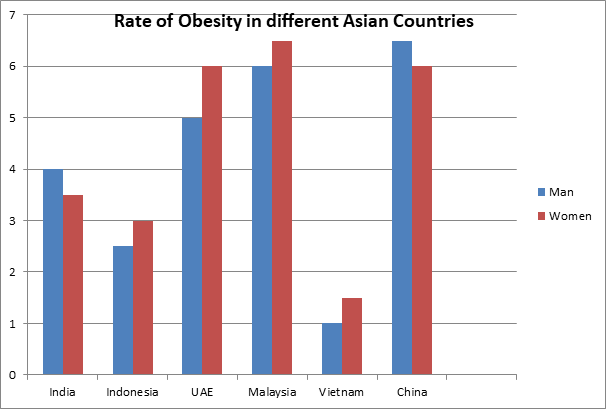
Importance and Scope:
This event is relied upon to exhibit an outstanding spectrum of research from different countries bringing together collective solutions. This Obesity diet 2018 will be of interest to anyone concerned in learning, sharing issues and experiences in regards to Obesity & its related areas of Medicine & Health Care. This Obesity meeting fetches leading and experienced Metabolic and Bariatric Surgeons, Physicians, Basic and Clinical Research Scientists, Registered Dieticians and Diabetes Educators, Integrated Health Professionals, Industry Professionals, Physical Therapists, Students, Fitness Professionals and Health Promoters and many more.
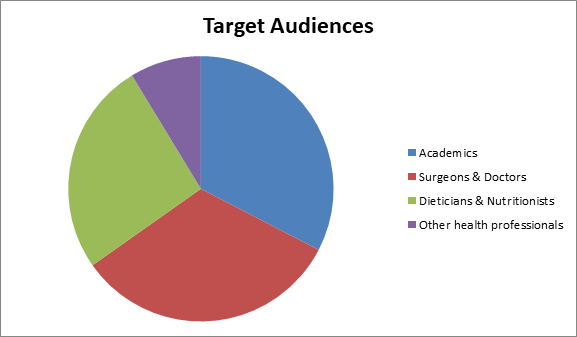
Members Associated with Obesity 2019:
- Surgeons
- Dieticians & Nutritionists
- Health Organizers
- Clinical Research Scientists
- Public Health Professionals
- Others
Obesity Associations and Societies: World
- European Association for the Study of Obesity (EASO)
- World Obesity Federation
- Global Obesity Prevention Centre
- World Health Organization
- World Heart Federation
- The International Association for the Study of Obesity
- The International Diabetes Federation
- The International Paediatric Association
- The International Union of Nutritional Sciences
- The International Development Research Centre
Major Universities Associated with Obesity Research Across the Globe:
- Harvard University, USA
- University of California, USA
- University of North Carolina, USA
- University of Helsinki, Finland
- Yale University, USA
- University of Texas, USA
- University of Pennsylvania, USA
- University of Pittsburgh, USA
- Osaka University, Japan
- University of Minnesota, USA
- Johns Hopkins University, USA
- Columbia University, USA
- University of Washington, USA
- Arizona State University, USA
- University of Johannesburg, South Africa
- Ain Shams University, Egypt
- North-West University, South Africa
- University of Cape Town, South Africa
- Stellenbosch University, South Africa
- University of the Witwatersrand, South Africa
- The American University in Cairo, Egypt
- University of KwaZulu-Natal, South Africa
- Rhodes University, South Africa
- University of Pretoria, South Africa
- Cairo University, Egypt
Related Conferences:
International Conference on Diabetes and Cholesterol Metabolism, November 25-26, 2019, Dubai, UAE
18th International Conference on Gastroenterology and Digestive Disorder, September 23-24, 2019, Dubai, UAE
Annual Congress on Diabetes and Endocrinology, December 12-13, 2019, Dubai, UAE
3rd World Congress on Nutrition and Obesity Prevention, April 27-28, 2020 London, United Kingdom
26th International Conference on Human Metabolic Health - Diabetes, Obesity & Endocrinology, April 27-28, 2020, Helsinki, Finland
Related Societies:
Europe:
European Association for the Study of Obesity, Europe; International Union of Food Science & Technology, Europe, Association of European Cancer, Europe, European Childhood Obesity Group (ECOG), Europe; Austrian Nutrition Society, German Nutrition Society, Finnish Society for Nutrition Research
USA:
Canadian Digestive Health Foundation, USA; National Research Council, USA; Canadian Nutrition Society, USA; American Society for Parenteral and Enteral Nutrition (A.S.P.E.N.), USA; Canadian Obesity Network, USA; Canadian Society for Exercise Physiology, USA; American Council of Science and health; American Society of Anaesthesiologists
Asia-pacific:
The Nutrition Society of Australia, Asia; Academy for Eating Disorders; The Korean Nutrition Society, Asia; Dietitians Association of Australia, Asia; Nutrition Society of Malaysia, Asia, The Nutrition Society of Australia, Asia; The Korean Nutrition Society, Asia; The Endocrine Society of Australia
Middle East:
Obesity and Metabolic Surgery Society, Annual Gulf Obesity Surgery Society, The Nutrition Society, Pediatric Endocrine Society, Metabolic and Endocrine Society
Conference Highlights
- Obesity and its Causes
- Genetics of Obesity
- Balanced Diet and Chronic Diseases
- Nutritional Imbalance and Role of Metabolism in Obesity
- Role of Steroids and Hormones in Obesity
- Pediatric Nutrition
- Childhood Obesity: Causes and Prevention
- Obesity and Psychiatric Disorders
- Nutrition and Brain Health
- Obesity and Cardiac Health
- Bariatric Surgeries and its Types
- Post-Surgery Diet and Exercise
- Exercise, Yoga and Physical Therapy for Healthy Weight Loss
- Weight pills for Obesity
- Prevention and Management of Obesity
- Traditional Chinese Medicine and Acupuncture
- Role of Anesthesiologists in Obesity
- Current Research in Nutrition and Dietetics
- Malnutrition or Nutritional Deficiency
- Maternal and Child Care during Pregnancy
- Pediatric Nursing in Obesity Prevention:
To share your views and research, please click here to register for the Conference.
To Collaborate Scientific Professionals around the World
| Conference Date | November 25-26, 2019 | ||
| Sponsors & Exhibitors |
|
||
| Speaker Opportunity Closed | Day 1 | Day 2 | |
| Poster Opportunity Closed | Click Here to View | ||
Useful Links
Special Issues
All accepted abstracts will be published in respective Our International Journals.
- Journal of Obesity & Weight Loss Therapy
- Journal of Nutritional Disorders & Therapy
- Journal of Nutrition and Dietetics
Abstracts will be provided with Digital Object Identifier by



















